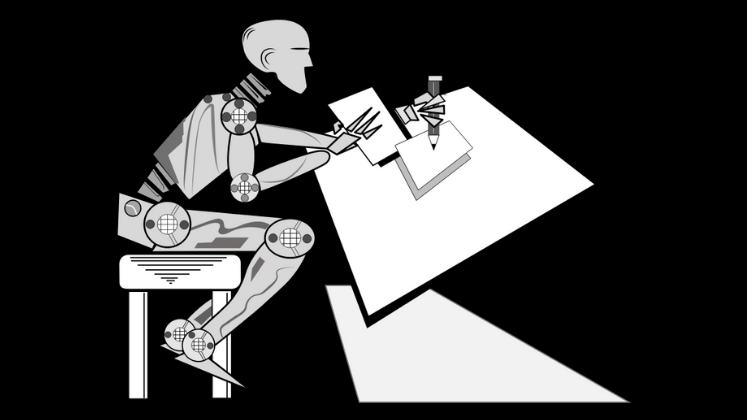Research Impact, especially as conceptualised in the Research Excellence Framework, is often seen as bounded within a clearly defined project timeframe. In this post, Ryan Nolan, discusses how the National Interdisciplinary Circular Economy Research (NICER) Programme, has developed an interdisciplinary and long-term approach to research impact by focusing on education and community building.
The importance of institutional memory cannot be understated. It is a crucial tool for maintaining the continuity, efficiency and impact of all types of organisations and collaborations. Institutional memory is more than the ‘sum of recorded files and learned procedures’ possessed by organisations. As Jack Corbett and his colleagues have suggested in relation to centralised governance, institutional memory is ‘dynamic’ and ‘people-centred’.
In universities, research projects addressing a wide-variety of issues come and go, and it is important to ensure the knowledge and skills they produce are kept alive. Bids are written, teams assembled, research conducted, results published, projects wound up and people move on. But of course, they are not straightforwardly linear operations. Priorities change as results are produced and analysed. Further funding blurs the end of one project and the start of another. All the while, new techniques are trialled, tools developed and, hopefully, records and reports are collected on the progress of the project in achieving its aims. This can result in the impact of these projects being ephemeral and recalling Theseus’s ship, we might be tempted to ask what is lost or gained amidst all this change and is a longer-term approach possible?
Beyond all the epistemic infrastructure (tools, methods, and systems that enable the production, dissemination, and use of knowledge) that projects produce, what about that other common feature of university life? Education. The role of education in building long-term impact and institutional memory is crucial. Learners are future scholars, policymakers and industry leaders who inform and build on the knowledge developed through current projects. They may even be in those positions already. By embedding education in research projects and providing diverse actors opportunities to learn from and contribute to them, institutions can create pathways for preservation and institutional memory, in turn enhancing the long-term impact of the research.
As an example, the UKRI National Interdisciplinary Circular Economy Research (NICER) Programme (2021–2025) brings together a variety of actors to develop tools, provide the evidence-base for policy, and support industry to move the UK towards a more circular economy. The project’s organisational structure throws up interesting challenges, but also great possibilities, in that it is distributed across five circular economy centres (CECs) – working on textiles, mineral-based construction materials, technology metals, ‘big’ metals, and chemicals – and a coordinating CE-Hub. NICER brought together over 30 universities and hundreds of individuals through events, subprojects, and workshops. As the Programme reaches its mid-point, questions of impact and legacy inevitably come to the fore.
The NICER Programme’s efforts to develop educational initiatives in the UK over the past two years provide a case study to highlight the importance of institutional memory and how we think about it in relation to impact. Education, for us, is much broader than undergraduate teaching. Rather, we wholeheartedly embrace the developing landscape of lifelong learning, executive education and citizen engagement. In this regard, we draw on the idea of institutional memory not as a singular thing, but as an emergent collective property strongly linked to the actors involved. This is central to the function of research projects such as NICER, which at its core is an epistemic community focused on urgent questions to reimagine the UK economy.
Over the past year, the NICER Programme has engaged learners in a variety of settings and our work in this area continues to grow as we pass the project’s mid-point. These engagements span the broad scope of the project, which is essential for developing wide-spread knowledge of circularity processes across material flows, value chains and sectors. It is also crucial for embedding the long-term memory of the project.
The ‘I’ in NICER stands for interdisciplinary, and this is central to our educational initiatives described below. While the concept traditionally refers to collaboration between two or more academic disciplines, we extend this open approach to collaboration to our student co-producers, lifelong learners, and proactive citizens. Emblematic of the latter, but characteristic of all three, is the Big Repair Project from NICER’s Interdisciplinary Centre for Circular Metals. Bringing citizen participants into the research to inform government policy on ‘Right to Repair’, we are extending the circular economy community and the reach of the Programme.
The Circular Economy Masterclass, developed by members of the CE-Hub, serves as another example of this principle. Based at the University of Exeter’s Centre for Circular Economy – which recently became the first Global University Partner of the Ellen MacArthur Foundation – the CE Masterclass attracts executives from the world’s top organisations and researchers at various stages of their careers in an intensive online environment. Our Masterclass model has attracted huge interest and we continue to iterate in line with bespoke requirements of industry demands and developments in circular economy research.
Beyond these examples, we are developing much more across NICER that will place teaching and learning at the centre of activity. These include Massive Open Online Courses, museum exhibitions – building on the success of the Regenerative Fashion Hub from the Textiles Circularity Centre – and new undergraduate courses.
All this is to say that we recognise the important role education plays in the long-term impact and institutional memory of large research projects like NICER. By collaborating with learners in a variety of settings, we aim to strengthen the institutional memory of the project. Not only to the benefit of the project, but the state of circular economy research in the UK. Engaging with learners of all kinds has enabled us to extend the reach of the project and our network of NICER actors, which can help ensure that the project and its outcomes will have a lasting impact and inform the narratives of others in the field as they take up the project’s outcomes in the pursuit of new knowledge and modes of living.
NICER has thrived by bringing together students, lifelong learners and citizens and will continue to do so, through our Circular Economy Centres and beyond. By investing in educational activities, fostering interdisciplinary collaboration and co-production, we aim to ensure that the impact of the NICER project will be felt across sectors in the years to come. Other organisations and institutions working on ‘grand societal challenges’ would do well to engage the actors in their network as a mechanism to deliver long-lasting impact. They simply need to make sure, as do we, that their memory lives on.
To find out more about the NICER Programme, please visit our webpages or write to R.C.Nolan@exeter.ac.uk.
The content generated on this blog is for information purposes only. This Article gives the views and opinions of the authors and does not reflect the views and opinions of the Impact of Social Science blog (the blog), nor of the London School of Economics and Political Science. Please review our comments policy if you have any concerns on posting a comment below.
Image Credit: Adapted from Jonas Jaeken via Unsplash.








